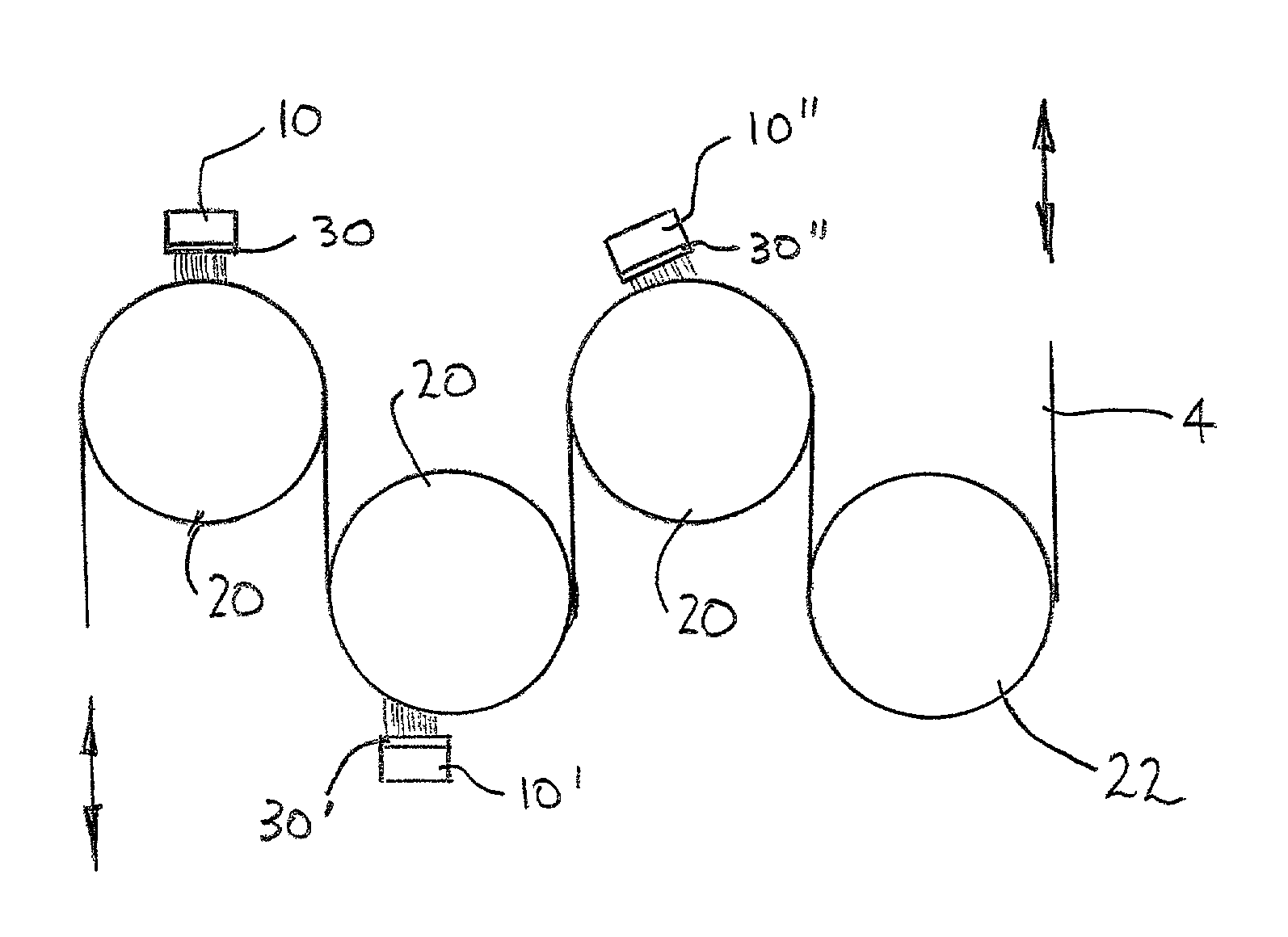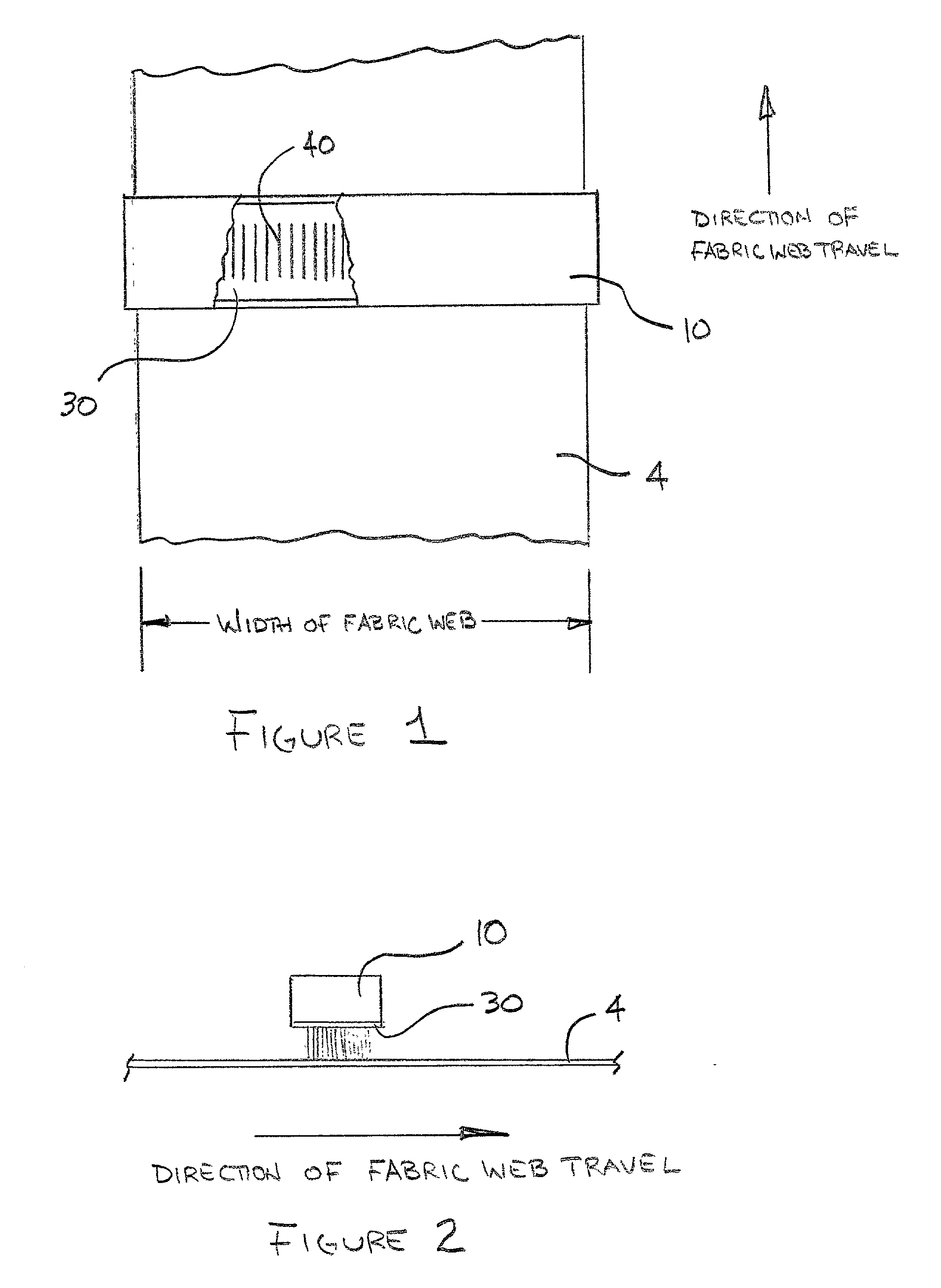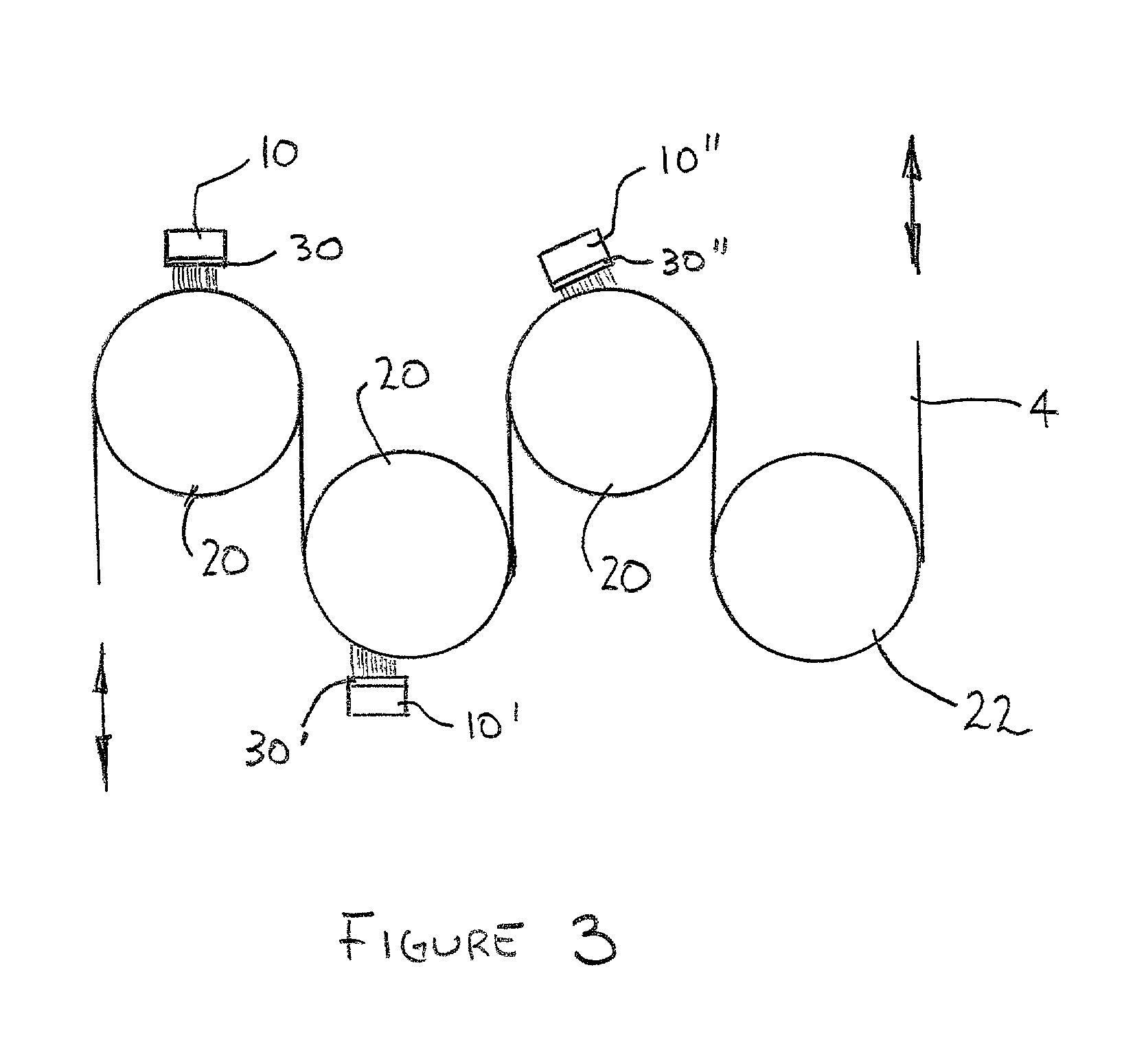Method for hydroenhancing fabrics using a shaped orifice
a technology of hydro-enhancing fabrics and orifices, which is applied in the direction of drying machines, lighting and heating apparatus, and drying machines with progressive movements. it is not feasible to simply increase the number of orifices per inch, and is difficult to make and maintain multiples
- Summary
- Abstract
- Description
- Claims
- Application Information
AI Technical Summary
Benefits of technology
Problems solved by technology
Method used
Image
Examples
Embodiment Construction
[0105] FIG. 1 is a plan view of a moving web and a partially cut-away manifold.
[0106] In one embodiment of the present invention, a fabric web 4 passes underneath a manifold 10. Partially shown in the cut-away portion of manifold 10 is the orifice strip 30 and a series of parallel elongated orifices 40 in the orifice strip 30, where the major axes of the elongated orifices 40 are parallel with the direction of travel of fabric web 4. In FIG. 1, manifold 10 is placed so its longitudinal axis is perpendicular to the direction of travel of fabric web 4, and fabric web 4 appears to be on a flat support surface (not shown). However, it is within the practice of the present invention to orient manifold 10 so that its longitudinal axis is not perpendicular to the direction of travel of fabric web 4.
[0107] FIG. 2 is a side elevation view of a moving web, a manifold and an orifice strip.
[0108] In one embodiment of the present invention, moving fabric web 4 passes underneath manifold 10 and o...
PUM
| Property | Measurement | Unit |
|---|---|---|
| angle | aaaaa | aaaaa |
| diameter | aaaaa | aaaaa |
| diameter | aaaaa | aaaaa |
Abstract
Description
Claims
Application Information
 Login to View More
Login to View More - R&D
- Intellectual Property
- Life Sciences
- Materials
- Tech Scout
- Unparalleled Data Quality
- Higher Quality Content
- 60% Fewer Hallucinations
Browse by: Latest US Patents, China's latest patents, Technical Efficacy Thesaurus, Application Domain, Technology Topic, Popular Technical Reports.
© 2025 PatSnap. All rights reserved.Legal|Privacy policy|Modern Slavery Act Transparency Statement|Sitemap|About US| Contact US: help@patsnap.com



